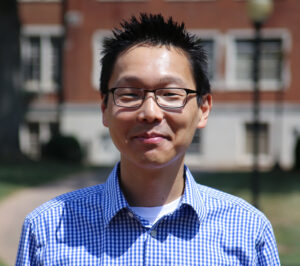
The Seminary Students We Don’t Talk About
Earlier this year, the song, “We Don’t Talk About Bruno,” from the animated film, Encanto¸ emerged as a viral sensation. The film’s protagonist, Mirabel, is seeking counsel from her reclusive uncle, the aforenamed Bruno, who is difficult to find because their family has ostracized him for his propensity to speak uncomfortable truths. Both of my children, one in middle school and the other in elementary school, reported that nearly everyone was singing this track. My eldest child even offered to show me some of the countless covers of the song on TikTok and YouTube.
In my experience teaching at a freestanding seminary, I have observed that there are also students that theological educators don’t talk about, or talk less about, whether within our own institutions or across guild contexts, such as the American Academy of Religion and Society of Biblical Literature. Our conversations often focus upon two kinds of students: the ones who inspire us and the ones who terrorize us. Amid what almost always feels like a demanding academic semester, it is easy to talk about the students who are enlivening our classrooms and motivating us to sharpen our pedagogical skills. And we rightly seek collegial support concerning those students who abuse, antagonize, and aggravate us for a myriad of reasons, including discrimination based on race, ethnicity, gender identity, ability, nationality, and sexuality.
I can think of two kinds of students that we don’t talk about as much as the terrific and the terrible. The first is the tired student. I teach at a denominational seminary with increasing ecumenical, ethnic, and racial diversity within our student population. The Master of Divinity degree is required for ministerial ordination in the denomination to which my seminary belongs, the Presbyterian Church (U.S.A.). Therefore, our Presbyterian students are generally not full-time pastors during their studies with us. More of our students from different ecclesial traditions are already full-time pastors and seeking further education to augment their capacities for ministry. Some are bi-vocational pastors leading congregations and balancing multiple responsibilities. In addition to working at least two jobs, they are also primary caregivers for young children, aging parents, and other family members.
The tired student I am describing is also exceedingly thankful. During the nationwide racial reckoning in response to the killings of Ahmaud Arbery, Breonna Taylor, and George Floyd two years ago, my seminary implemented a broad and comprehensive plan for Black reparations, which included new scholarships that cover the full cost of tuition and fees for every admitted African American student. In addition, my seminary offers generous scholarships that support the entire cost of tuition for every other non-Black student in a first-level master’s degree program. For some of the students in my classroom, these scholarships have made it possible for them to pursue a theological education.
But because all these scholarships require full-time enrollment, I encounter the tired student who is juggling my syllabus along with other family, ministry, and work commitments. One pastor who I admire shares this wise counsel utilizing the metaphor of juggling: One must discern which balls are made of rubber and which are made of glass when prioritizing one’s schedule. The “glass” tasks must not be dropped because they will shatter whereas the tasks that are made of rubber can fall to the ground. For the tired student, I am aware that my assignments and class sessions are more like rubber than glass, especially in comparison to their other responsibilities. The tired student is sometimes unable to show up or perform well on an assignment. Or the cost of showing up and performing well requires a herculean effort with substantial costs in terms of the tired student’s mental, physical, and psychological health.
The second kind of student we don’t talk about is the triumphalist student. It is more precise to describe this student as one who comes from a more theologically conservative ecclesial context in comparison to my seminary. Some of my students are unfamiliar with historical-critical methods of biblical interpretation, postcolonial theology, and progressive Christianity. They have not heard of scholars such as Katie Geneva Cannon, Walter Brueggemann, and Kwok Pui-lan. They are unaccustomed to theological inquiry that identifies and criticizes some Christian doctrines and practices. Their conceptions of church history revolve around a search for examples of Christians enacting courageous witness and exemplifying the triumph of God’s goodness over evil. Yet renowned church historian Justo González observes the story of Christianity, when told fully and honestly, includes beautiful moments of awe-inspiring faith and ugly episodes where it is difficult to discern the divine presence. As an historian of Christianity in the United States, the only way that I can teach a full and honest history is to confront the active participation and complicity of Christians who committed and perpetuated the sins of settler colonialism, slavery, sexism, nativism, and other oppressive injustices. And my lessons do not always have heartwarming endings that uplift the soul. There are certainly moments of reflection and application, but some chapters of Christian history are sinful and irredeemable.
There is diversity with the “triumphalist student” I am describing such that I do not want to present this kind of student as a monolith. Some students experience our seminary classrooms as liberative spaces where they can expand their ways of thinking theologically about themselves, God, and Christian ministry. Other students undergo a complex process of educational formation with stages of disorientation and deconstruction preceding reorientation and reconstruction. And a few students remain resistant to our methods of pedagogy. We talk some about the “triumphalist student” who testifies to a metanoia from our curriculum, but we need to talk more about how these students return to congregations that are unprepared to receive their transformed approaches to ministry and theology.
Leave a Reply